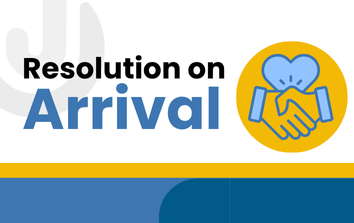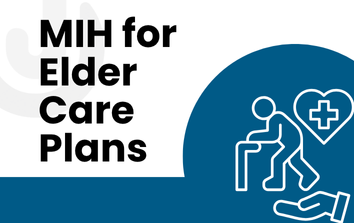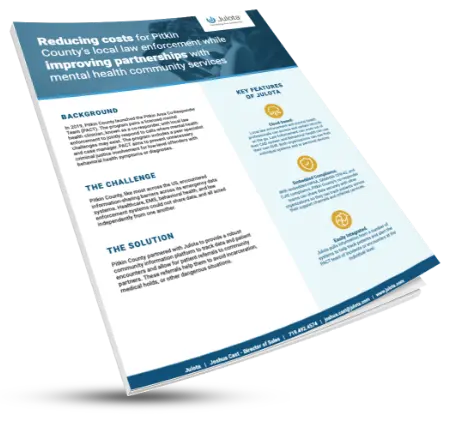At first glance, empathy may not seem like a critical component in healthcare – isn’t “good care” the top priority? As we discuss how to have empathy in community paramedicine, you’ll see that empathy and good care are directly linked.
To have empathy in community paramedicine, providers must actively practice seeing the world through the patients’ eyes. Just like practicing a health assessment or procedure, empathy is a skill that can be developed (or at least improved). Empathy leads to more satisfied providers, better care, and improved outcomes.
In this guide, we’ll talk about the importance of empathy in mobile integrated healthcare community paramedicine. We’ll also discuss how community paramedic programs can develop more empathy.

Why Empathy is So Important in Community Paramedicine
Many people think of empathy as a moral trait. While everyone wants people to “be nice to others,” empathy is often overlooked as a necessary skill for community paramedicine. In this section, we’ll explain why empathy is vital for healthcare providers and community paramedicine. Just like assessment or procedural skills, empathy is a skill and trait that is needed and impactful.
Before we go too far, let’s provide a working definition of empathy. According to Oxford Languages, empathy is “the ability to understand and share the feelings of another.” While there are broader definitions, empathy is the ability to understand someone else’s experiences (think about the phrase “in their shoes” when thinking about empathy).
Here’s why empathy is so vital for community paramedicine:
- Improves the patient assessment
- Reduce provider errors and improve patient experience
- It helps reduce provider burnout
In the following sections, we’ll try to look at these points in a nuanced way.
Empathy Improves Patient Assessment (and subsequently, care)
Empathy directly improves patient assessment, which will then enhance care. What do we mean? How does this work? Consider a patient who is already distrusting of healthcare workers, or perhaps they are afraid of hospitals – will this person be likely to open up to a community paramedic who treats them like “just another patient?”
When a community paramedicine team shows a patient empathy, that patient will be more likely to open up and share accurate details about their health and history. In turn, the provider will have a more comprehensive health picture and be able to develop an optimum treatment plan.
Also, since empathy builds trust, patients are often more likely to follow through with care plans.
Empathy Can Reduce Provider Errors and Improve Patient Experience
Empathy also helps reduce provider errors. How? Many of us who have worked in healthcare know the feeling of having a loved one in the hospital. Perhaps it’s a parent, child, or sibling. In these cases, we are often hyperaware of what the healthcare staff is doing. Why? Because we are highly empathetic to those that we love.
In the same way, when providers build more empathy for their patients, there is heightened attention to care, which will reduce the chance of provider error. In thinking about this, providers should realize that not only does this reduce the risks for the patient, but it also reduces the liability on themselves, as they will be less likely to make a medical error.
In addition to reducing provider errors, showing empathy to patients also improves their overall experience, raising their satisfaction with care and alleviating anxieties around healthcare.
Empathy Can Help Reduce Provider Burnout
Finally, empathy can help reduce provider burnout. This is a little confusing, as many people think of this in reverse: burnout leads to a lack of empathy. In this case, both are true. Burnout and empathy are a two-way street. Burnout can lead to a lack of empathy, but a lack of empathy can also lead to faster burnout.
When providers empathize with their patients, they are less likely to become frustrated and will likely find more satisfaction in their work. Reducing provider burnout and retaining community paramedics can help heal stagnant MIH-CP programs.
Now, let’s talk about several ways community paramedicine programs and providers can work to have more empathy.
How Community Paramedicine Can Foster More Empathy
While empathy is undoubtedly a variable trait, with some people having more empathy than others, there’s no doubt that people can work to improve their levels of empathy. We should note that this is a relatively complex issue, and all ideas here might not work for all people in all situations.
Here are four ways to have more empathy in community paramedicine:
- Know where Empathy Can be Lacking
- Recognize and avoid common pitfalls (elder speak and “baby talk”)
- Look at the Person and Imagine They are Someone’s Loved One
- Take Detailed Notes that Go Beyond a Checklist
Now, we’ll have a detailed look at these points.
Improving Provider Empathy: Recognize Where Empathy is Lacking
The first step to improving empathy is to admit that it may be lacking in some areas. Many of us quickly say, “I have empathy,” but it’s important to be honest with ourselves. Do we have empathy for every patient? All the time? Do we treat everyone equally? The answers to these questions will differ for everyone. However, they are important to ask.
Empathy studies have indicated that many providers tend to show less empathy to patients who may be struggling with substance abuse or mental health issues. However, there are certainly more areas where providers could be prejudiced.
While a lot could be said here, the main point is this: everyone falls short in empathy at some time or another – how can we all improve? Even if we are among the most empathetic people on the planet, how can we improve? When providers think about it this way, it becomes less about saying: “I’m empathetic, and that person isn’t,” and more about asking: “how can we all improve?”
Improve Empathy by Avoiding Common Pitfalls Such as “Elderspeak” and “Babytalk”
We mentioned that recognizing where we lack empathy is a good starting point. The next place to improve empathy is to look at common pitfalls. One of these pitfalls is elder speak.
Elderspeak is the phenomenon of providers talking to older adults with a “baby talk voice” (regardless of the patient’s cognitive abilities). While there are certainly times when a patient will need clarification or for a provider to speak slower, it’s a mistake to apply this type of altered speech to all patients universally.
Providers should ask this question: when I’m an older adult (or any age for that matter), how would I want a doctor, nurse, or paramedic to speak to me? Would I want them to talk to me with a high-pitched, slowed-down, baby-talk voice? Or would I want them to treat me as an equal and speak to me with a voice of respect?
Even making small changes, like eliminating elder speak from patient interactions, can improve provider empathy and raise patient confidence levels.
Place Yourself in Their Shoes (Imagine the Person is Someone’s Loved One)
Another technique for improving empathy is to imagine the person is a loved one. While this can be difficult to imagine, everyone you treat is somebody’s loved one. When community paramedicine teams think this way, they will have an easier time developing empathy for the people they treat daily.
Note: also consider using humanizing language when you can. Not only is this respectful to the patient, but it will help you foster more empathy. For example, instead of thinking of a person as a “seizure patient,” think of them as “a person struggling with seizures.” Also, when you can (and when appropriate, considering privacy, etc.), use the patient’s first name when talking to them.
Take Detailed Notes Beyond Regular Vitals and Checklists
Last, consider taking detailed notes about the patient. How does this help with empathy? Here’s an example. Let’s say you have a patient struggling with alcohol dependence. Instead of just recording numbers related to the patient’s vital signs or blood alcohol levels, consider taking notes such as, “This man appears upset that he had to leave his family to come to the hospital.”
Taking these notes about the person’s well-being helps you think about them differently. Instead of looking at them as lab specimens, you look at them as a person –fellow human beings with fears, wants, desires, and dreams, just like the rest of us.
Now, let’s go over a few final thoughts.
Conclusion: Developing More Empathy in Community Paramedicine
Developing empathy in a community paramedicine program can reduce medical errors, improve outcomes, and alleviate provider burnout. To foster more empathy, community paramedicine programs should consider where empathy may be lacking (even if they consider themselves mostly empathetic), avoid common pitfalls such as elder speak, and try to view the patient as someone’s loved one.
While empathy is a powerful force when caring for patients, it’s also powerful when working with fellow healthcare providers. There’s no doubt that tensions can flare up between providers at times. Empathy can help each department, clinic, or hospital unit understand the struggles of the other, leading to better collaboration and a more positive environment.
Contact Julota to learn how their integrated software tools can help improve your community paramedicine program by collecting more accurate data and forming strong partnerships.


